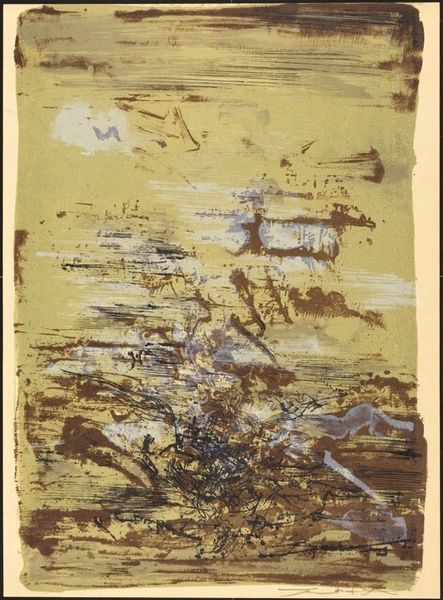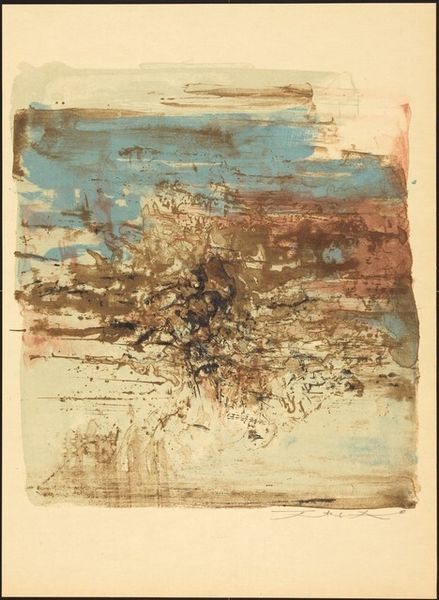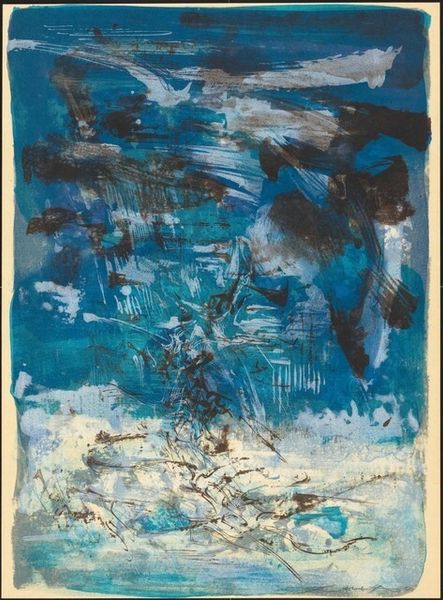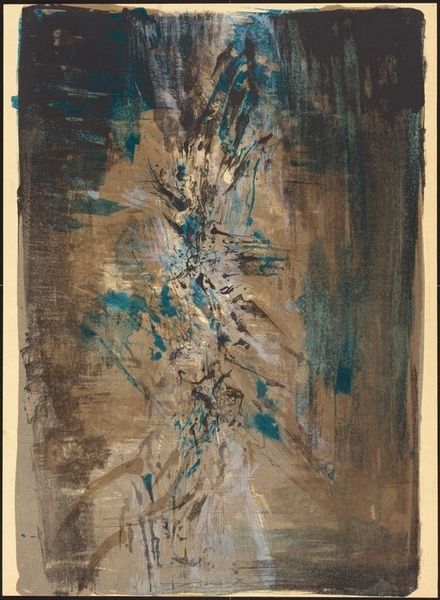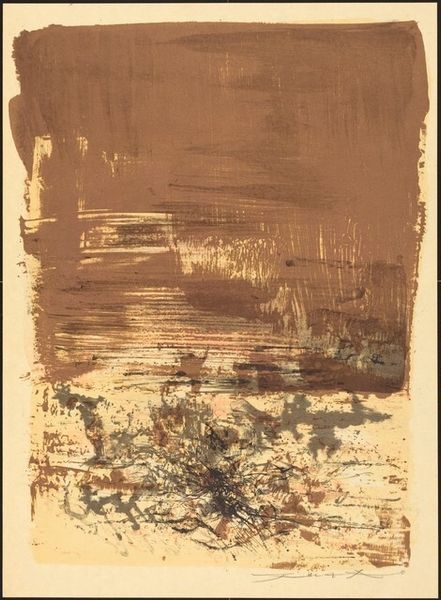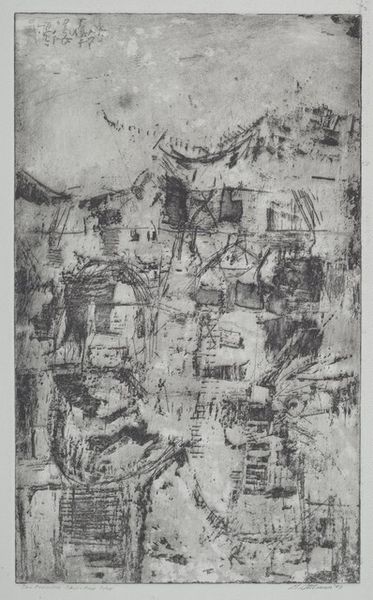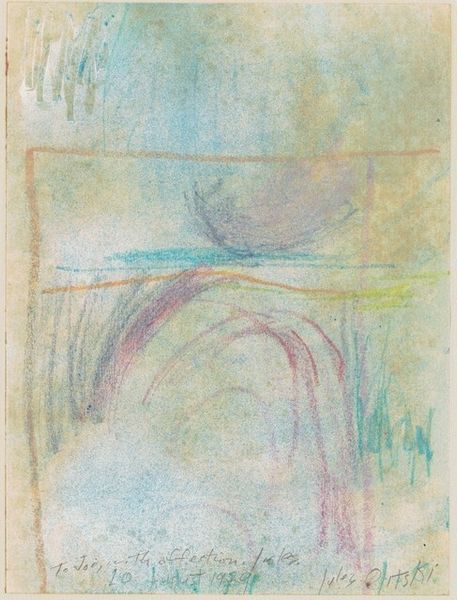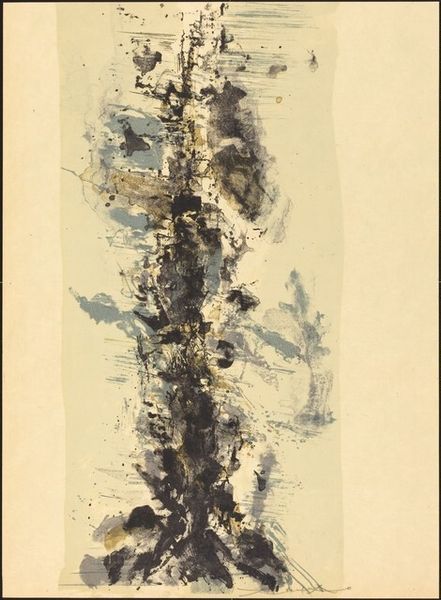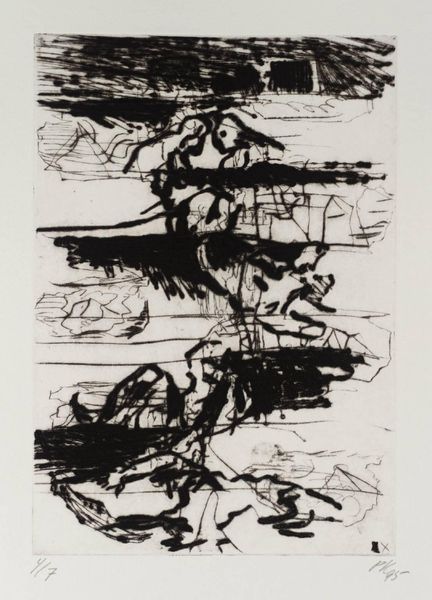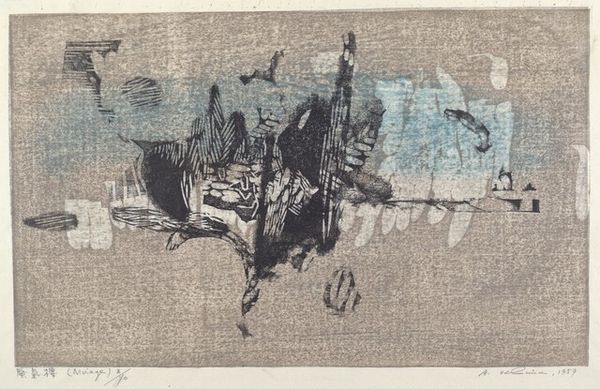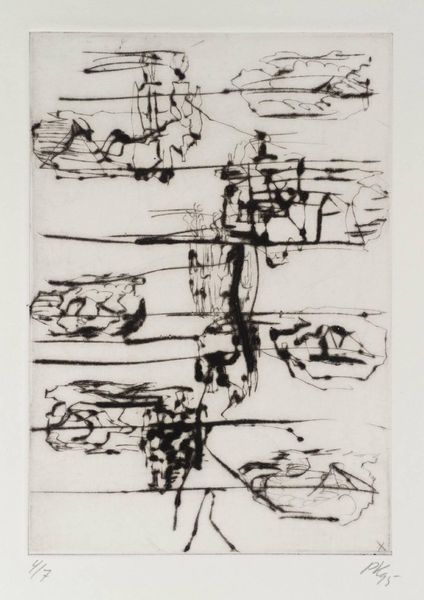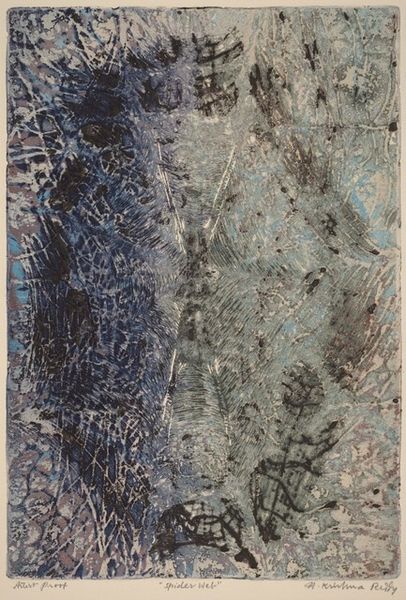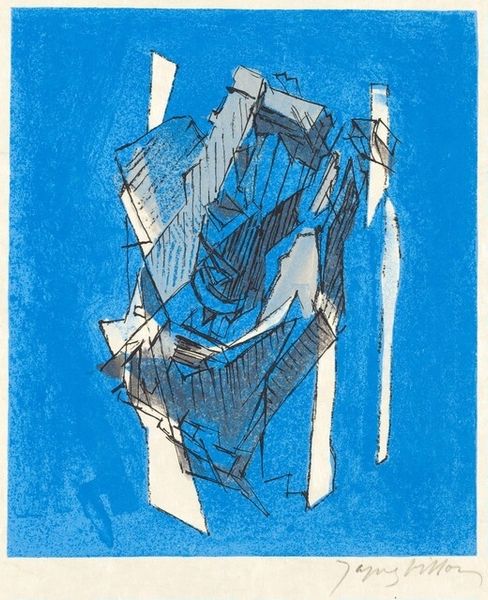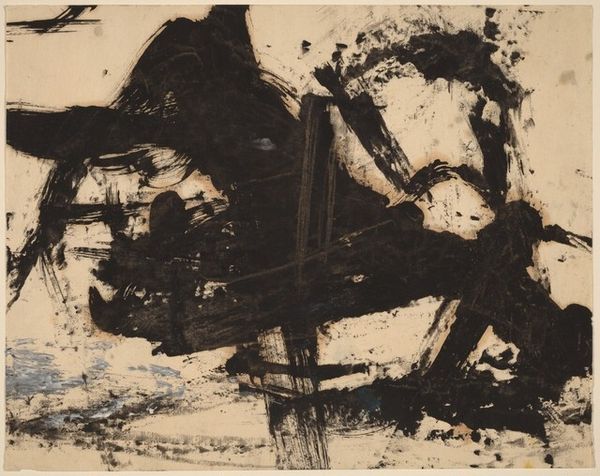
print, watercolor
#
abstract-expressionism
#
abstract expressionism
#
water colours
# print
#
asian-art
#
landscape
#
form
#
watercolor
#
geometric-abstraction
#
abstraction
#
line
Copyright: National Gallery of Art: CC0 1.0
Curator: This piece, "Untitled," is believed to be from around 1962, a watercolor print by Zao Wou-Ki, a prominent figure who bridged Eastern and Western art traditions. What’s your first reaction? Editor: A fleeting memory. I immediately feel this almost mournful echo, the soft blues creating a vast, atmospheric void around a darker, almost violently energetic central form. There's something about the composition that feels suspended, unresolved. Curator: Indeed, Zao Wou-Ki’s trajectory after his move from China to Paris saw him embrace abstract expressionism, although always filtering it through his Chinese heritage. You see that echoed in his simultaneous adoption and adaptation of established practices. His work really highlights the global exchange present within artistic circles in the mid 20th century. Editor: Precisely. And looking closer, I see how the central dark cluster is almost like a calligraphic character exploding, an undoing. A central motif is dissolving, re-forming. Considering his background, are we meant to interpret some coded meaning behind those lines and shapes, a symbolic self-portrait maybe? Curator: While tempting, I think reducing Zao’s abstracts to pure symbolic representation simplifies the intention. The “void” you mentioned mirrors concepts found in Taoist philosophy and landscape painting. I’m interested in his institutional positioning: How was his bicultural approach received? Did it reinforce or challenge Western dominance? Editor: Well, by integrating calligraphy-esque strokes, he activates a shared visual memory for viewers acquainted with that history. I see the cross-cultural interpretation adding layers. Those dripping watercolor effects—suggestive of waterfalls, maybe evoke resilience or the unstopping power of time? Curator: His exhibition history shows curators and collectors readily embraced him. Yet it’s fair to wonder if that reception essentialized his Eastern identity for Western consumption. His abstract style resonated at a time when "international" styles were gaining acceptance within museum programs. Editor: Perhaps. Yet beyond those academic questions, there is a pure sense of yearning, even cosmic solitude rendered visible. The universal language of emotionality shines through, regardless of context. Curator: So while we can contextualize Zao Wou-Ki's piece politically and analyze the forces at play, your reading of the personal remains potent too. Editor: In the end, isn’t art about making those intangible states felt beyond the theory? That's where the piece will always resonate.
Comments
No comments
Be the first to comment and join the conversation on the ultimate creative platform.
